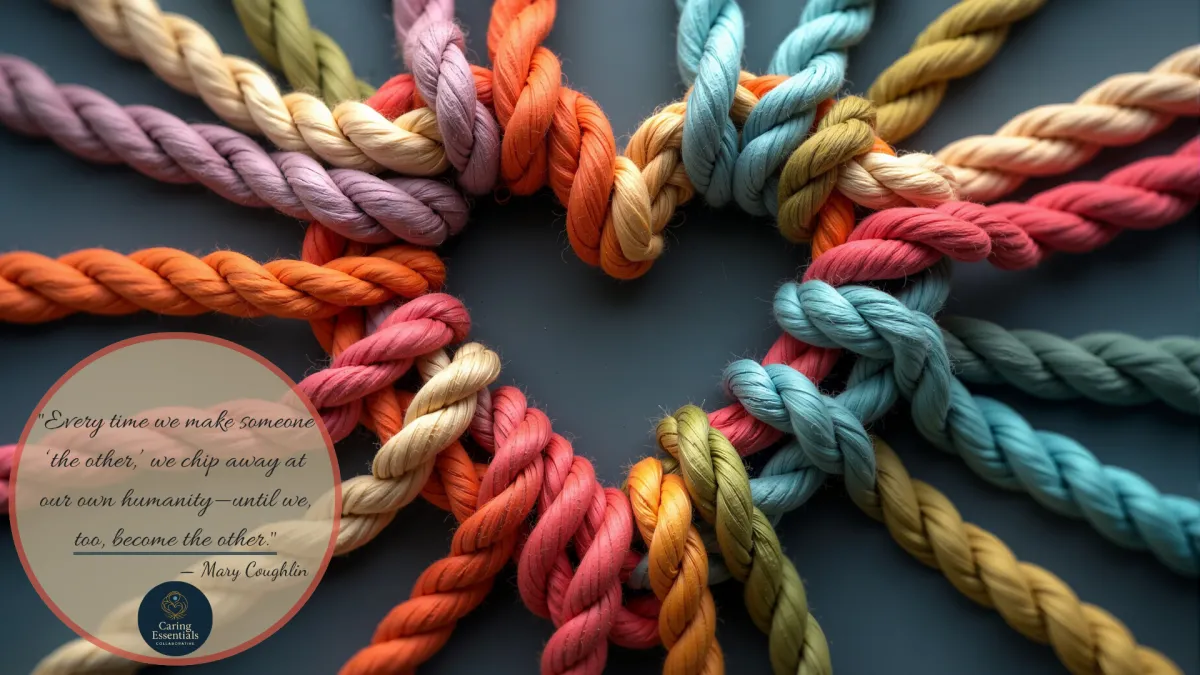
When We Other, We All Lose: A Trauma-Informed Call to Belonging
"Every time we make someone ‘the other,’ we chip away at our own humanity—until we, too, become the other." - Mary Coughlin
When We Other, We All Lose: A Trauma-Informed Call to Belonging
Lately, I’ve been sitting with the heartbreak of how deeply we’ve learned to “other” one another. We’ve gotten so good at drawing lines—of race, religion, politics, immigration status, ability—that we forget the simplest truth: we belong to one another.
But when we practice othering long enough, something happens: we stop feeling. We see atrocities—whether it’s the devastation in Gaza or ICE raids happening quietly in our own neighborhoods—and we normalize them, because it’s easier than facing the ache of responsibility.
This is what othering does. It numbs us. It convinces us that suffering is inevitable, that silence is safer. But every time we turn away, we lose a piece of ourselves.
The Trauma-Informed Lens
A trauma-informed approach teaches us that othering is both a symptom and a cause of collective trauma. It’s a survival mechanism—one that powerful systems exploit to keep people divided, fearful, and compliant.
When we stop seeing others as fully human, we abandon our own capacity for empathy. And when empathy is gone, so is accountability. That’s when harm can thrive unchecked.
The B.U.F.F.E.R. Way Forward
Belonging – We must widen the circle. Belonging is not just a feel-good ideal; it’s a basic human need that sustains our health and humanity.
Understanding – Othering thrives in ignorance. Seeking to understand—even when it’s uncomfortable—helps us resist the easy narratives that dehumanize others.
Forgiveness – Not as forgetting or absolving harm, but as a courageous reckoning. We can name harm and hold systems accountable without replicating cycles of shame and blame.
Frameworks – Trauma-informed principles, Caring Science, and even simple human decency offer us a roadmap: see the whole person, center dignity, disrupt harm.
Equanimity – In the face of injustice, staying grounded matters. Outrage is necessary, but it must be channeled into action, not despair.
Respect – At its core, this is about honoring inherent worth—especially when society has cast someone aside.
The Cost of Our Silence
Every time we look away from suffering—every time we say, “That’s not my fight”—we help build a world where belonging shrinks and cruelty grows.
But it doesn’t have to be this way. Belonging is not a distant dream—it’s a daily practice, a conscious act of resistance to the forces that divide us.
Today, where will you choose belonging instead of othering? Where will you refuse to stay silent?
Because in the end, belonging is the only way we all survive.
For every thread of our shared humanity,
Mary
